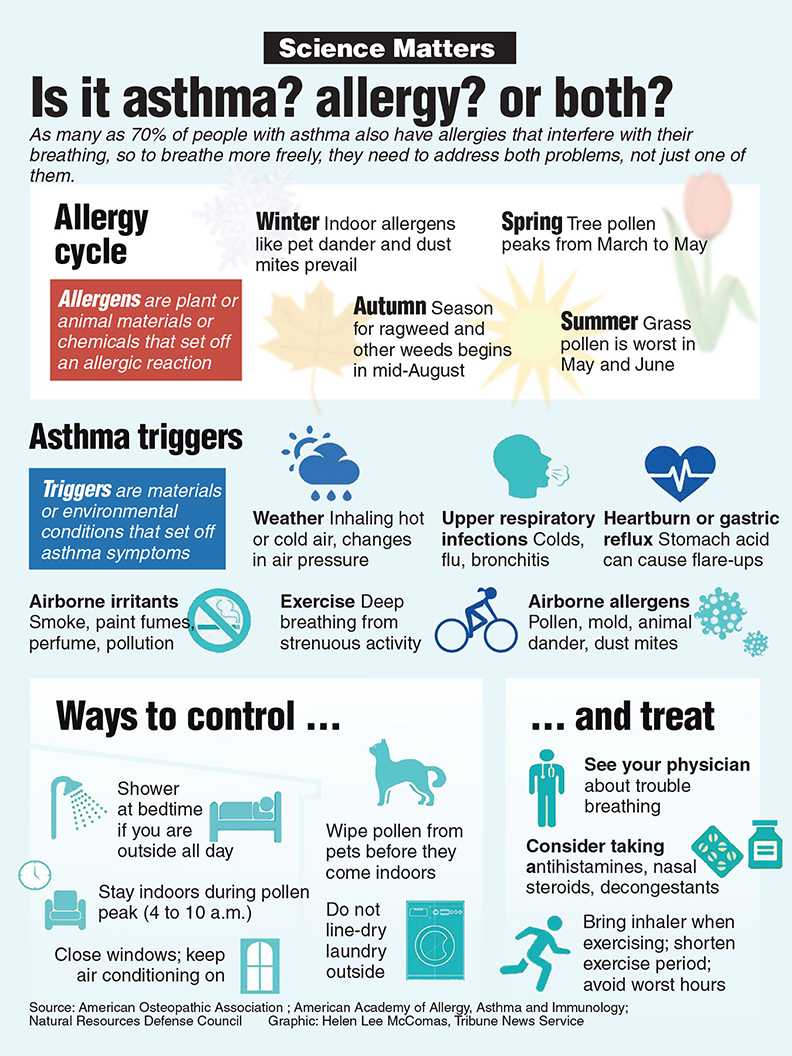Photo Courtesy of Tribune News Service – Weekly Science Matters graphic: Asthma and allergies often occur at the same time.
By Reece M. Krantz ’16
THE ROUNDUP
Student athletes face many challenges in today’s world of competitive, 365-day-a-year sports schedules.
Now more than ever are risks that can be associated with active participation.
One of these risks is asthma.
Asthma is a common term to describe the inflammation or constriction of the airways, and it affects more the 24 million Americans, according to the Asthma and Allergy Foundation of America.
Mr. Chris White, the head athletic trainer and the PE/Health department chair, said that many students athletes and students alike are affected.
“I would be willing to bet about one in 10 have at some point been diagnosed, some very severe, some heavily medicated,” he said.
There is also a few different types of asthma, with allergy-induced and exercise-induced being the most common, according to Mr. White.
While asthma can have a negative impact, it is not completely dehabilitating.
“We have never had an athlete who has been disqualified from a sport because of asthma,” Mr. White said. “But an attack can affect them.”
Most people who have asthma perform the same as those who do not, but in some cases the air quality can impact the intensity of their condition.
“The Phoenix air is full of particulates and allergens, so a lot of our athletes are affected seasonally,” Mr. White said. “The more stuff that is in the air, the worst the asthma can be.”
AJ McGinn ’17 is a junior who is affected by his asthma. Unlike most, he developed it from another illness.
“I got it due to Valley Fever that affected my lungs,” McGinn said. “It gave me similar effects to asthma in 8th grade.”
Because asthma affects the airways, McGinn said he has trouble with athletics.
“When you try to do any physical activity, it feels like you are suffocating. It’s gets hard to breath when you run,” McGinn said. “I was more of a sports person so I still play on a basketball team at the YMCA and try to get into more sports.”
McGinn’s morning routine is also affected, since he has to take prescriptions and Albuterol in order to help open his airways.
“In the morning I have to take two puffs of my inhaler and as needed I have to do these breathing treatments,” McGinn said. “Other than what doctors prescribe you, there is not much you can do. Stand up straight, take deep breaths and deal with it.”
He also said that the Brophy community has helped him get through some struggles.
“Brophy has been a good community and will help you through anything.”























